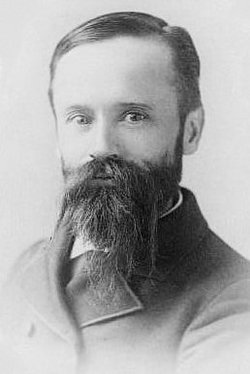Never The Twain
I recommend Andrew Levy's Huck Finn's America, though it's a bit of a mess. It's less than 200 pages of text (throw in the notes, bibliography and index and it's around 340 pages), yet here are some of the subjects it covers:
--Mark Twain's childhood
--how Twain developed as a writer
--Twain's stage presence
--How Huck Finn was written
--the story of the minstrel show in the 19th century
--the post-Civil War world of America, and what concerned citizens of the day, many of which echo today's concerns
--the failure of Reconstruction
--Twain's promotional lecture tour for Huck Finn, "Twins Of Genius," where he shared the stage with George Washington Cable, a writer almost as famous and controversial as Twain at the time
--the history of "bad boy" books in the 1800s
--the reception of Huck Finn when published
--Twain's relationship with his wife and daughters
--Twain's evolving views on race
--different prescriptions for how to raise children
--the success and controversy of Huck Finn in the 20th and 21st century
and quite a few other subjects, many of which deserve books of their own.
Of course, Huck Finn is, as Levy notes, a hodge podge itself. Perhaps the most-read novel today that was published before 1900, it contains many different styles (not unlike a minstrel show, which Levy believes influenced Twain). There's out and out jokes and funny dialogue. Parody of Shakespeare and others. Set pieces of great power. Kitchen sink realism. Farcical scenes and characters. Numerous deaths. Philology. Anthropology. Reflective passages of breathtaking beauty. A coming-of-age story. A moral narrative. And a youthful protagonist who smokes, swears and avoids school at all costs.
It also contains the "N-word." A whole lot. This wasn't why it was controversial at first, but it sure is now, even if that's how a Huck Finn would have spoken in his day, and Twain sometimes uses it to make a point.
One thing I found fascinating was the description of his lecture tour. Huck Finn was not yet out, but Twain was a famous author and an accomplished speaker. He performed mostly older pieces, and chose one section from his new book--a dialogue between Jim and Huck about King Solomon and why the French speak French. (Though it's early in the book, Levy notes it was literally the last part of it that Twain wrote.) In recent times, critics have bemoaned this chapter, where Twain drops everything to do, in essence, a minstrel routine. But leaving aside its literary value (which I think has been unfairly downgraded), Twain knew he had comedy gold, and it played well. (Later in the tour he read some of the final sections of the book, where Tom Sawyer gets involved--Twain loved the fun, but modern critics feel the book falls apart here.)
This was of special interest to me because when I was in high school I did forensics, a competition where you'd gives speeches. (I considered it debate for lazy people.) I usually did "humorous interp," where contestants would read comic passages. Most of my competition picked basic stuff, like columns by Dave Barry or Erma Bombeck, but I tried for something deeper. My two favorite readings were a trial scene from Catch-22 (trials are good--you want plenty of dialogue), and sure enough, the very part of Huck Finn that Twain thought worked best in front of an audience.
I should add that Huck used the "N-word" in this selection. I performed it, sometimes in front of African-Americans. I wasn't embarrassed because I knew that was how Huck would talk in those days, and, more important, the word is being used ironically. Huck is losing the argument with Jim, and is exasperated, and so uses the word that signifies white supremacy when it fits even less than usual (not that it ever fits). It's all but unimaginable this could happen today. I don't consider that progress.





3 Comments:
I was curious about George Washington Cable and intrigued enough from this and his wiki to read something by him or given my eyes and lack of time for reading, an audiobook to listen to. Unfortunately though audible.com has pretty deep selection, my search for "Cable" came up with a book called "Amy Does the Cable Guy" for the closest match. A 24-minute opus that is probably just as long as(or perhaps longer than) it needs to be.
Though temporarily distracted but not dissuaded, I will try my old New England town library and see what I come up with for GW Cable and report back (probably some time in 2017)
He comes across in the book as a very interesting character. He was a slight man from the South who'd served in the Confederacy because that's where he's from, but fought strongly for ex-slaves' rights. When Twain hired him to come on the tour, he was well known as an amusing writer who mastered the French patois of New Orleans, but as the tour went along, his writings on treating blacks like whites were coming out and highly controversial. He was regularly denounced in the South, as you'd expect. Twain felt deeply for ex-Slaves, but his public stance was more mixed, and his controversial partner eventually annoyed him.
He was also the kind of person who exaggerated, and was a bit affected in performance. After the tour, the two rarely spoke.
Well "Strange True Stories of Louisiana" by Cable was available for free on the Kindle from Amazon. I've needed an excuse to learn how to use my Kindle.
Post a Comment
<< Home